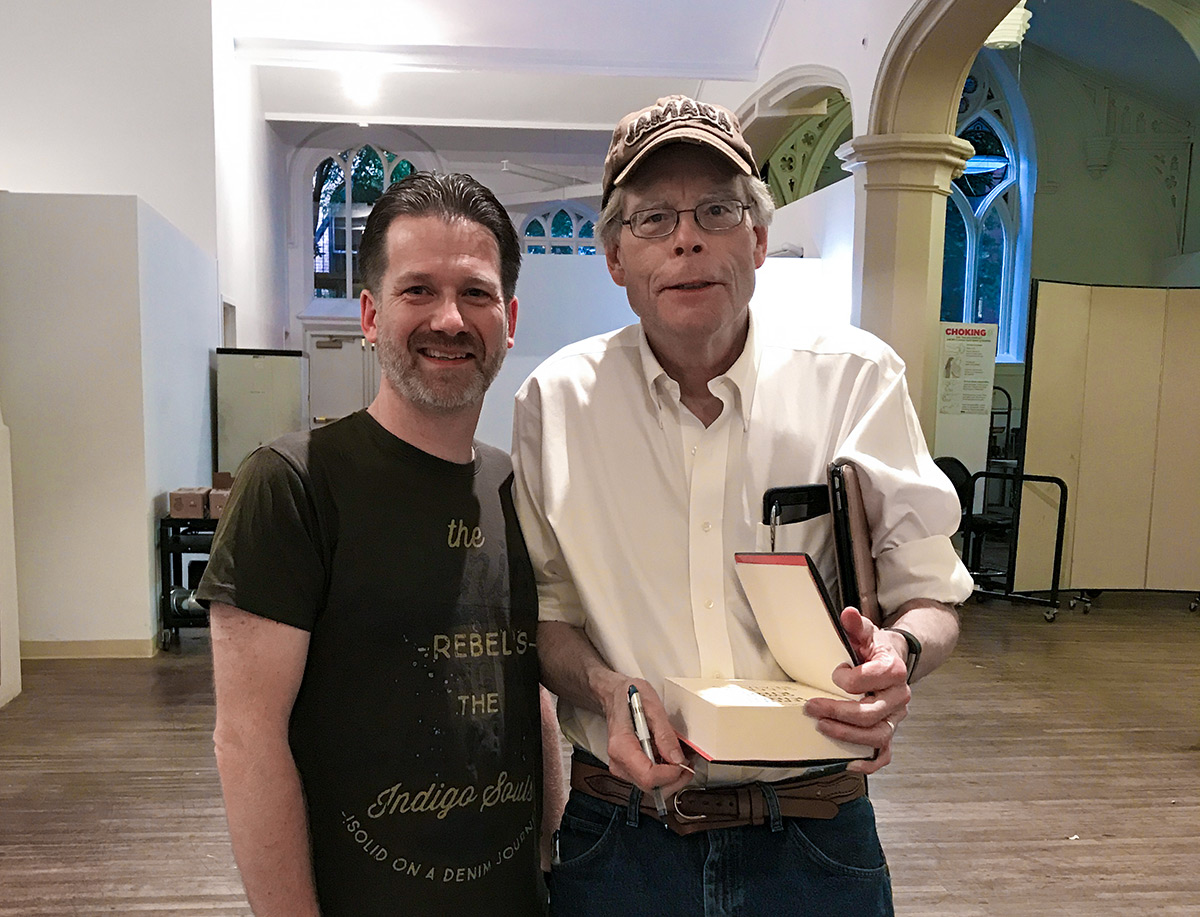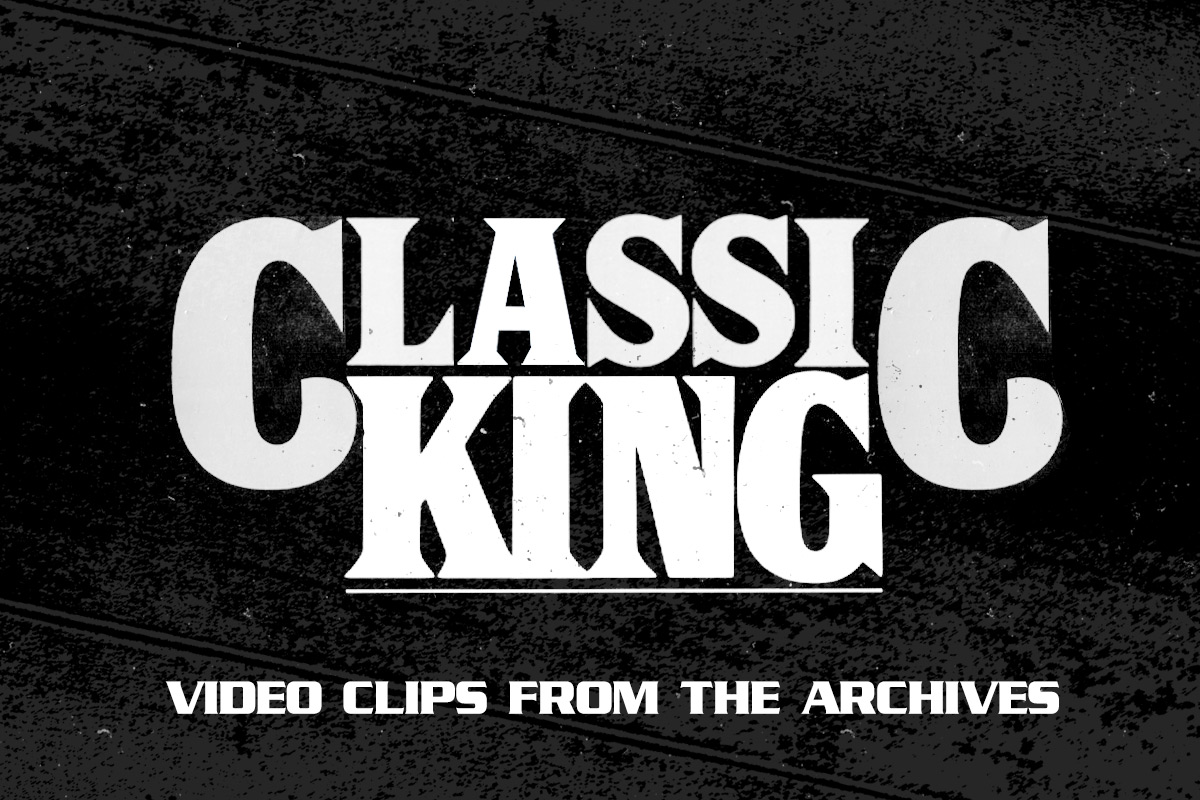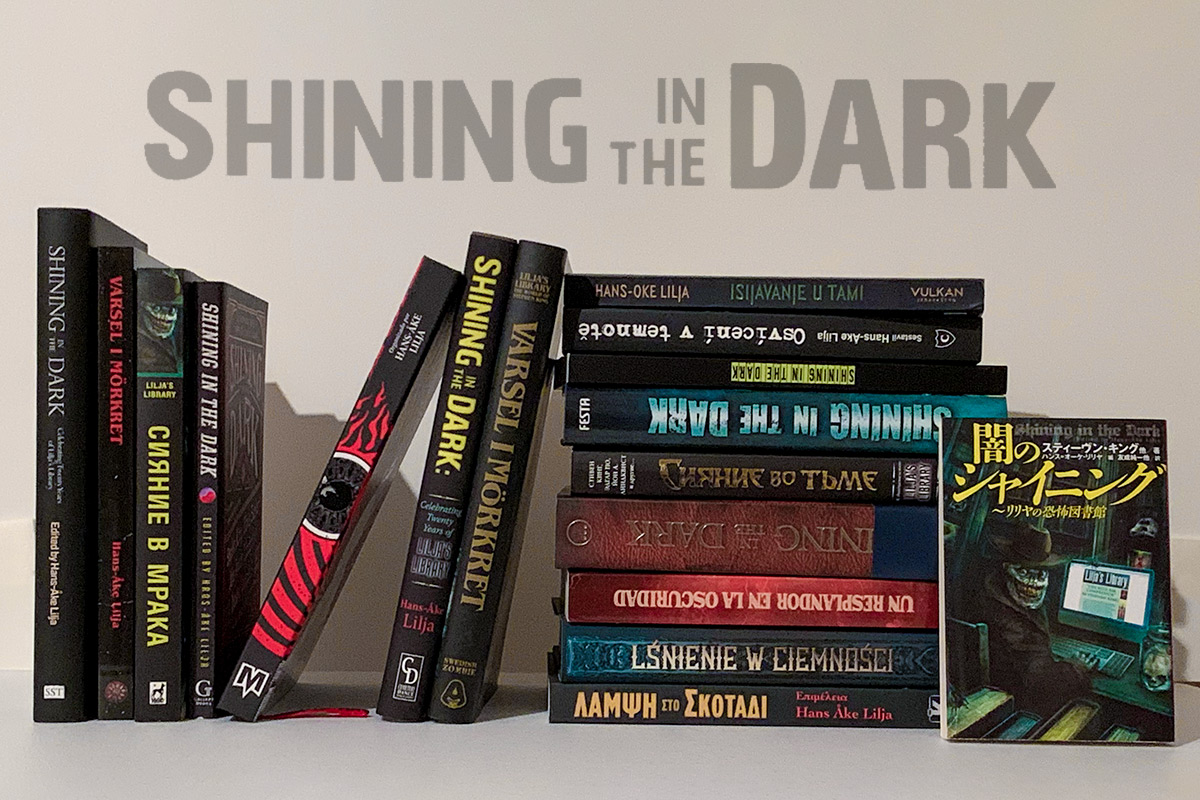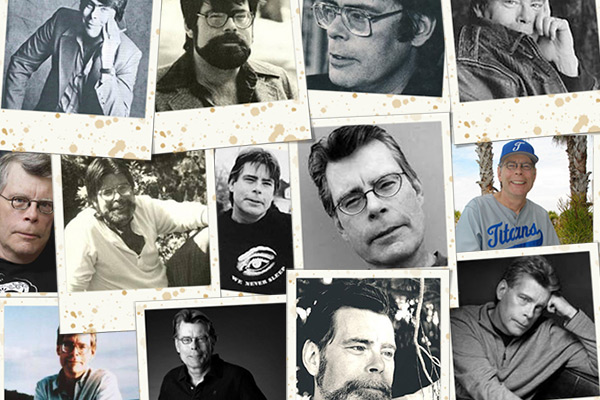Greg Nicotero
Posted: January 6, 2012
_
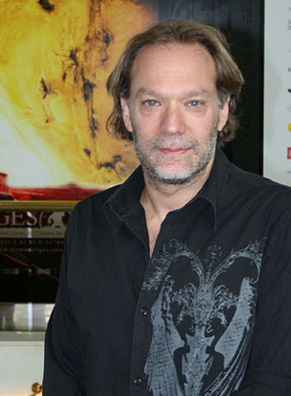 When I call Greg at KNB it’s 8:10 on a Friday morning. I’m told this is the last day before the holiday break but still Greg takes the time to speak to me and one of the first thing he tells me is that his sorry it’s taken so long to set up this interview. I don’t know Greg but from what I have learned about his through this interview this shows what a generous man he is and it opens up for a great interview in which it’s also obvious how much he really loves his work. Here’s what was said.
When I call Greg at KNB it’s 8:10 on a Friday morning. I’m told this is the last day before the holiday break but still Greg takes the time to speak to me and one of the first thing he tells me is that his sorry it’s taken so long to set up this interview. I don’t know Greg but from what I have learned about his through this interview this shows what a generous man he is and it opens up for a great interview in which it’s also obvious how much he really loves his work. Here’s what was said.Lilja: I searched your name on IMDB.com and you have been involved in a lot of movies…
Greg Nicotero: [laugh]
Lilja: …how do you find the time to do them all?
Greg Nicotero: That’s a good question [laugh]. We started the company 23 years ago and that was just the way we did it. The way we learned how to handle shows were this. There were two other partners in the company and we sort of divide and concur you know. We each handled a different series of shows, co-supervising everything. I would go of and working with Robert Rodriguez or Quentin Tarantino and Howard would go of and work with Mark Johnson or Andrew Adamson on the Narnia movies so by having that ability to do multiple jobs at the same time we were able to amount a pretty substantial credit base pretty quickly.
Lilja: And you have to have been successful because you keep getting a lot of work, right?
Greg Nicotero: Well, we’ve been doing it for a very long time. We started in 1988 and we got into it just at the right time. If we’d been getting in a little bit later we probably would have missed that big boom in the 80’s, the big makeup effects boom. But we were fortunate.
Lilja: Is it a lot different now than 20 years ago?
Greg Nicotero: Oh, very much so. 20 years ago there were 40 makeup effects shops you know and every single film that came out had prosthetics and there were a lot of genre movies made. Even if you think of the early 80’s and the summer when Blade Runner, Escape from New York, Creepshow, The Thing, Poltergeist, Raiders of the Lost Ark and Star Trek 2 there were a 2 year period were so many movies came out that were all genre movies. That was the big draw. It allowed guys like Tom Savini, Rick Baker and Rob Bottin to become household names. Still to this day if Tom Savini walks down the street people recognize him. There were movies like Dawn of the Dead and Friday the 13th that made Tom Savini a household name. Nowadays things are very different, effects are done differently and fortunately for us we have The Walking Dead which very much promotes the makeup effects aspects of the show so we’re pretty fortunate there to have a show where people embrace what we bring to the table. And people love talking about the Zombie makeups. They wanna talk about how we do it and the way I look at it is that we’re literary shooting a Zombie movie every eight day.
Lilja: Do you feel you have to come up with new version of Zombies all the time or are they pretty much mapped out for you in the script?
Greg Nicotero: No, they are actually not. There are hints on some of the action in the script but it’s really most of the time up to me to determine how we execute it and how we do it. Some of the directors, myself included, will need to have a little bit of latitude to what to do but you know I do have the responsibility of being able to shape and dictate how we shoot stuff because of my involvement in the show. We don’t have six or eight weeks to prep an effect. The directors will often just look to me and go “OK, how are we going to do this?” because we have to start building or imagine it before the directors are even hired.
Lilja: I noticed in the bonus material on the DVD for season 1 that you have a lot of extras that you make up as Zombies. Do you feel that is more like a job that needs to be done than a challenge for your creativity?
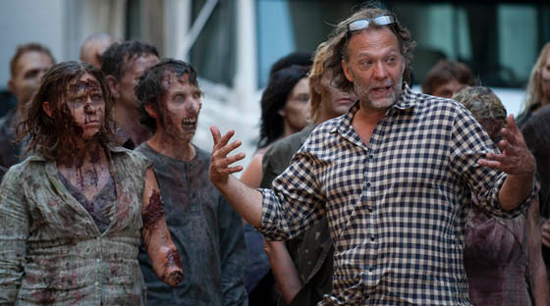
Greg Nicotero: No, absolutely not. The beautiful thing about it is that when I and my makeup team get a new person in the trailer it’s like a new canvas. You sort of look at their faces and you go “OK, I know what I wanna do with you” and very often when we have casting calls for mass numbers of Zombies we have the ability to sort of creatively allow the Zombie to come through from looking at the actors face and then taking the pieces and designing it from there. A lot of the featured Zombies I sort of pinpoint ahead of time. Saying I want this guy to play that part and he should wear this piece, I want that guy to play that part so there are hero makeup and things that are custom but there also have to be a little free form because there are times when we’ll do a really elaborate makeup on a Zombie and he might not get seen because he’s too far in the background and then it’s my job to bring him forward to make sure he gets featured and we get a good shoot of him.
Lilja: Is it hard to come up with new versions or do you have molds like this is Zombie #1 and this is Zombie #2 that you then work from?
Greg Nicotero: No, it’s not because we hit a really good stride where there were techniques that we used that were successful. That we know worked and we would say “OK that Zombie looked great, we should do a couple more that looks like this”. “This Zombie he was to subtle or didn’t read really well so we shouldn’t do that anymore” so often I go through the trailer and say “Put more blood on that guy” or “add an extra wound on that person” so I really have an opportunity to art direct all the makeup’s and really put them towards the look of the show that I think is so critical.
Lilja: It sounds like a really fun job.
Greg Nicotero: It is. It’s one of the best jobs I have ever had because of the responsibility I have on the show. I’m producer, director and special effects guy. I’m able to be creative and unfortunately very often the makeup effects community is sold a bad rap because people think it takes a long time to set this thing up and shoot it and you get a little bit of a bad taste in peoples mouth so what makes me happy is that we know what we’re doing. We’ve grown up watching these shows and loving George Romero movies and John Carpenter movies and Steven Spielberg movies and that steady diet of great genre material makes us prime for helping the feature of the show.
Lilja: Did you ever imagine that you would do something like this for television? I imagine it would have been impossible just a few years ago to make a Zombie TV series.
Greg Nicotero: NO, I mean the thing is, I think because of what’s done on television and the risks being taken… You know when I worked on Land of the Dead with George Romero we was concerned with being to graphical because of the ratings and the irony is that we’re just as gory as a George Romero movie was 20 years ago but on television now. So things that was oppressive to Down of the Dead and Day of the Dead is now being seen in everybody’s home without anybody complaining about it.
Lilja: As you mention, your part in The Walking Dead has grown. How did that happen? I imagine that in the beginning you were hired as the special effects guy but now you’re producing and directing. Is this something that was planned or has your part grown along the way?
Greg Nicotero: Well, my involvement in the show has grown considerable because Gale Anne Hurd and Frank Darabont recognized that I know the genre and recognize the genre and that’s valuable to the show. It’s valuable to have that extra set of eyes watching what we’re doing on the show and I think it’s tremendously critical.
Lilja: I guess there are special effects that aren’t Zombie’s and gore but more like a wound in someone’s arm or more realistic things. Are those more challenging because their realistic nature and have to look more authentic than maybe a Zombie would have to?
Greg Nicotero: Yeah, with a Zombie you can hide a lot, you can put blood on a lot and you can make it look rotten and decomposed and certainly it’s less forgiving when you have a prosthetic that has to seamless blend on to somebody. So yes, you have to take a little more time to put it on and to make it look good and you know the real trick to that is that sometimes you only get one shoot at it. You get one take and its torn open and there is blood everywhere and you can’t repair it and make it look like it looked before the take. Very often we don’t get a lot of take two, take three and so on…
Lilja: Do you try the special effects on someone before you put it on the actor?
Greg Nicotero: Yes, we test everything. What’s really important is that blood gags are always unpredictable because you’re going to pump the blood but you don’t know which way the actor is going to move, you don’t know what the Zombie is going to do, you don’t know if the camera is going to catch it so very often you have to test it and look at it ahead of time to determine what the best angle is, how it’s going to look best, what we’re going to reveal and that kind of things. So we always, as often as possible, like to test things just to help take some of the mystery out of it because we don’t have the luxury or the time to do things twice.
Lilja: And you even stepped in as a Zombie in some of the scenes?
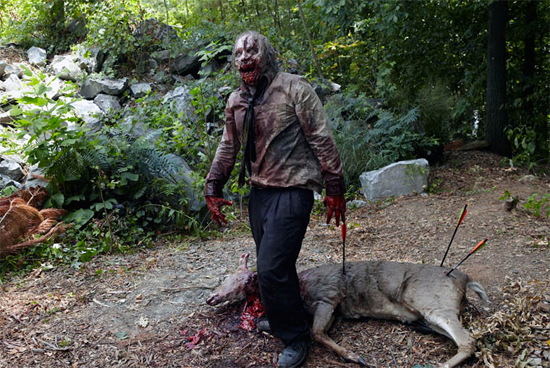
Greg Nicotero: I did. I was a Zombie in two episodes of season 1 of The Walking Dead. One was a Zombie eating a dear and then there was another episode where Emma Bell got killed. She played Amy and it was one of those situations where I wanted to make sure that the gag was well executed so I thought it was easiest for me to get into makeup and actually bite her on the neck versus an extra who would have to worry about missing the mark because it was so critical that we’d get it in one take.
Lilja: And your Zombie eating the dear has even turned into an action figure.
Greg Nicotero: I know! I have my own toy [laugh].
Lilja: Yeah [laugh], how cool is that?
Greg Nicotero: It’s pretty cool. It’s actually really exciting. I bought a couple of them and said to my kids “Hey, look I’m a toy! Do you guys want to play?” and they were like “Na, it’s OK”. They were excited about it but I think they got a bit creped out by the fact that I was a Zombie toy. But it’s fun. The show is certainly by far one of the hardest things I have ever done in my life. It’s really growling to have to have that level… You know if you do a movie you shoot sex, eight, ten, twelve weeks and you’re done. With The Walking Dead we shoot for six months and you always have to maintain a very, very clear specific level of attention to details. You have to. And that is hard. After a while you just kind of want a day of and you wanna not think about things and it’s really challenging to maintain that level of attention to details. And that’s why I’m saying, you hit a stride and you start getting your rhythm and you start to get moving really well and I always feel like the work we’re doing at the end of the season is better than the work we do at the beginning of the season because we start gaining our momentum and starting to realize what looks good and what we like so I always feel like by the time we get to the end of the season we’re doing really well and the Zombies are looking good.
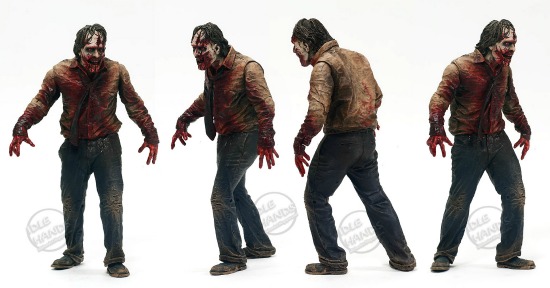
Lilja: And now a third season of The Walking Dead has been green lighted.
Greg Nicotero: Yeah, we start shooting in May.
Lilja: Are you done with season two?
Greg Nicotero: Yes, season two wrapped at the end of November and they are just finishing editing so I know they just locked the editing on the season finale but we start airing in mid February again. We’re having meetings about next year, looking at cuts of new episodes so I feel like I never stopped. But that’s OK, I’m not complaining [laugh].
Lilja: It’s a huge success. I read that within a week of the season two premier in the US it premiered in over 120 countries all over the world.
Greg Nicotero: I don’t think anyone would have ever known that it was going to be like that. I mean how could you ever predict that kind of… I don’t know how you predict that. The cast and everybody is just so delighted that the show has the legs that it does because everyone’s hard work is on screen and what always amazes me is that there’s nobody dragging their feet on set. The crew, from the camera operator on down, nobody drags their feet. It’s one of the hardest working crews I have ever worked with and it shows. It’s the whole thing about it; you can see how hard everyone works on that show because you watch it and its like “Oh, my God”. It’s extraordinary television.
Lilja: It’s amazing. I myself have loved Zombies for a long time so it’s no mystery that I follow the show but I have friends that don’t even like Zombies that are now saying that they don’t miss an episode of The Walking Dead because it’s so good.
Greg Nicotero: That’s really a tribute to the actors and the writing because all of a sudden you have people that don’t watch Zombie stuff and its like “Ah, Zombies aren’t really my cup of tea” but well, it is now. And people respond to the drama of it and to how well crafted the stories are, how great the performances are. If it was just a show about Zombies walking around eating people all the time it probably wouldn’t be nearly as captivating as it is.
Lilja: Does The Walking Dead take all you time of do you have time for other projects as well?
Greg Nicotero: Well, I have time for other projects. Last year we did a couple of other movies in the hiatus and I directed an episode of The Walking Dead and after we wrapped that I’m now working on the new Quentin Tarantino movie, we’re doing the remake of Maniac with Alex Aja and a film called Seven Psychopaths that Martin McDonagh is directing so, yeah, we’re hard at work. It’s a little crazy and I could certainly use a couple of days of but in this day and age, being in the business for 23 years and still being a viable entity in Hollywood, it makes us proud. This is what we’ve worked for.
Lilja: So you have reached the point where you want to be in your career?
Greg Nicotero: Yeah.
Lilja: Well, I hope you stay with The Walking Dead for a long time and that you have many seasons left.
Greg Nicotero: Thank you very much.
Lilja: Thanks for taking the time to speak to me. I really enjoyed it!
Greg Nicotero: Me to, thanks!

